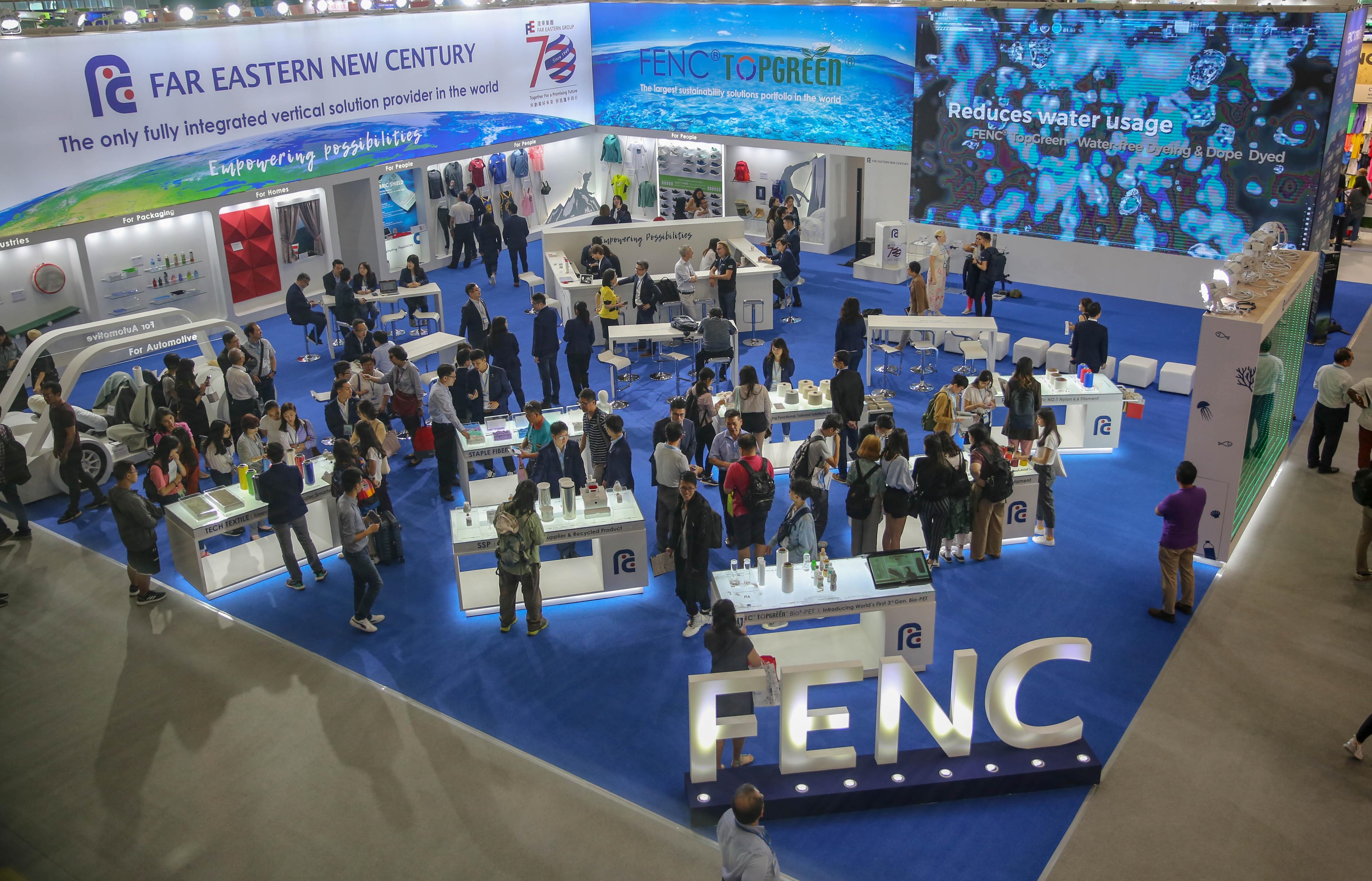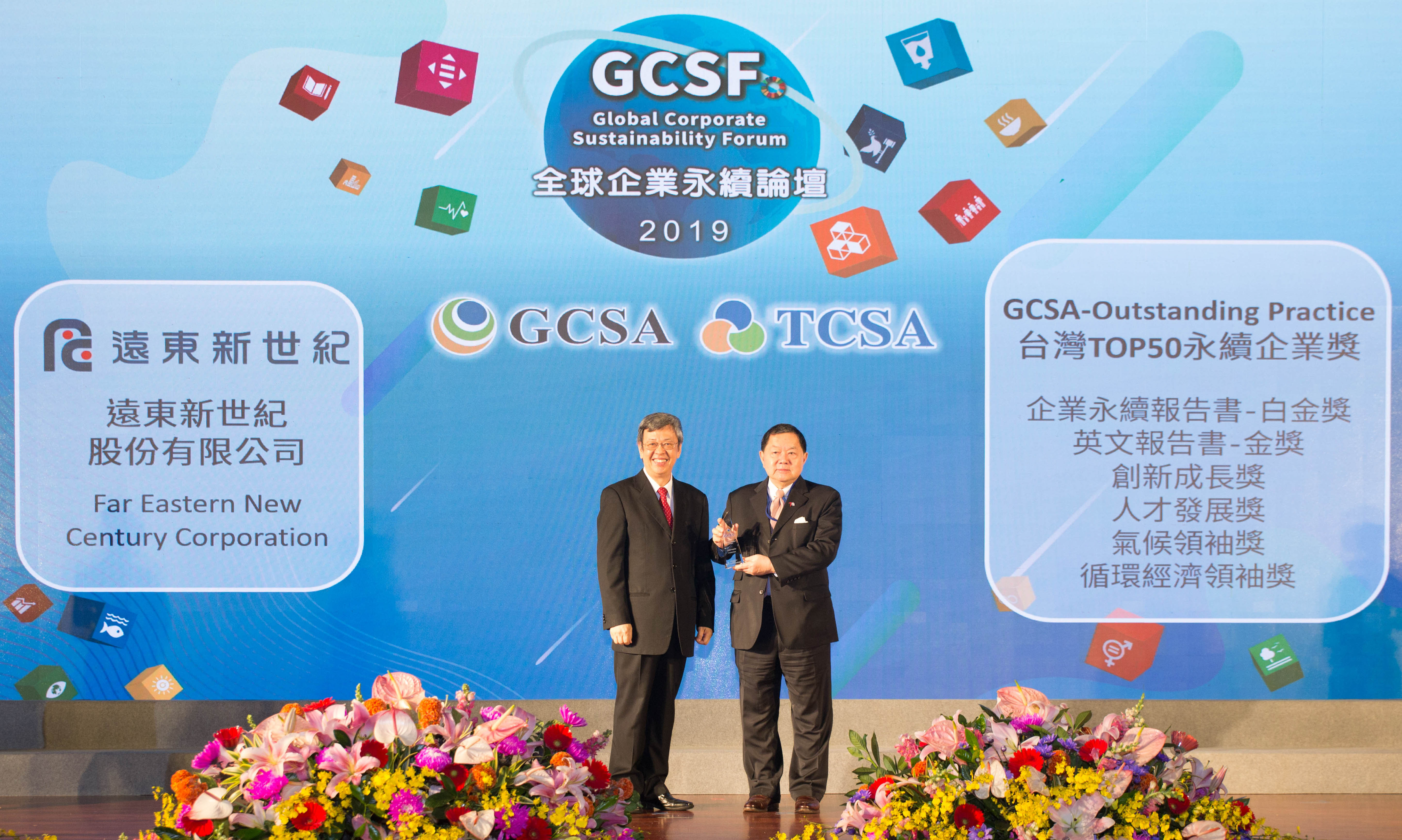2019 GCSA Outstanding Practice: Actualize circular economy, create innovative green products and accelerate the expansion of production capacity
The Far Eastern New Century Corporation (FENC), a global manufacturer of polyester-based (PET) products, is developing a more circular and sustainable business model in line with several of the United Nations’s Sustainable Development Goals (SDGs). FENC has created numerous partnerships with other organizations and companies to develop sustainable production methods and patterns (following SDG 17: Partnership for the Goals, and SDG 12: Responsible Production and Consumption), combat climate action (SDG 13), and conserve/protect the oceans (SDG 14). The three main strategies to achieve these goals were increasing usage of recycled polyester (rPET), increasing production sites, and developing new products (primarily packaging) made from oil/petroleum and recycled waste.
First, FENC has sought to increase the amount of rPET they use. So far, FENC has rPET processing plants in Taiwan, Japan, and the United States. The plant in Taiwan currently processes over half of the PET waste bottles generated in Taiwan, while their plant in Japan is the largest one of its kind in the country. In addition to increasing the production capacity of the current rPET plants, FENC is also planning to create rPET processing plants in Southeast Asian countries. These recycling plants will help drastically reduce plastic waste, decreasing the amount of plastic that enters the ocean.

FENC actualize circular economy, create innovative green products and accelerate the expansion of production capacity
Refining the production and processing methods is also a large part of developing sustainable production methods. Developing more usage for PET waste reduces carbon emissions, energy consumption, and the amount of waste generated, helping combat climate change. Spinning waste at production plants is also used to make nylon and polyester fibers, reducing CO2 emissions and energy consumption by about 70%. Recycled polyester film that would previously be incinerated has been used for imitation wood flooring in a train station in Taiwan, showcasing an especially creative way FENC has recycled its waste products. FENC has used recycled PET bottles as materials for sports jerseys. Their polyester fiber was used by NIKE for football jerseys in the 2010, 2014, and 2018 World Cups. In 2018, FENC even developed foam midsoles made from recycled PET bottles. The recycled PET bottles have also been approved by the US Food and Drug Administration for usage in food and liquid packaging.
FENC has also partnered with island nations to source plastic ocean waste for raw materials. In collaboration with Adidas and Parley for the Oceans, FENC started the Eco-friendly Yarn project. They helped teach island nations how to collect and recycle the island waste, before FENC used the recycled waste to create yarn for shoes and clothing. Between 2016 and 2018, this project helped recycle 2,600 metric tons of plastic ocean waste. It also helped the island nations clean ocean waste and develop a more sustainable economic model.
FENC is continuing efforts to expand production of rPET at existing plants, while also developing new plants. They are also continuously working to develop new uses for rPET to circularize the PET industry. This will reduce waste, combating climate change and helping to keep our oceans clean and healthy.

FENC at the award ceremony in 2019 Global Corporate Sustainability Forum